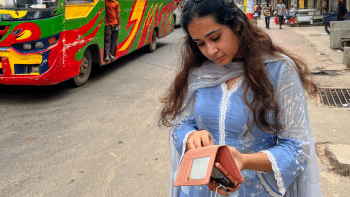Budget 2022-23 and the fate of our publishing industry

With the Russia-Ukraine war continuing and the (consequent) wave of inflation that has struck the world, serious concerns for our publishing houses have been raised–most of which, with much struggle, were gaining back their momentum as the pandemic slowly, seemingly, started dying down. Rising prices of essential commodities such as gas and oil means that soon, a major effect will become apparent on all levels in an industrial production process, and that includes–books.
The relationship between the publishing houses and the government is sewn in through the National Book Centre (Jatiya Grantha Kendro), which is under the jurisdiction of the Ministry of Cultural Affairs. The National Book Centre purchases books from publishers across the country and distributes them across public and private libraries. Data from the Ministry of Cultural Affairs dictate that a sum of BDT 1,038,100 (around USD 11,000) was allocated in the 2021-2022 fiscal year to the NBC.
On the other hand, almost 1,500 private libraries are listed under the NBC's database. The protruding question we're left with is this: is the allocated sum for purchasing even merely enough to support our publishers in this grave time?
Contrasting the two figures, the answer lies in the negative. The ministry also doesn't have any initiative or schemes for these publishing houses so far.
Besides this, the other, burgeoning issue now is the sourcing of the main ingredient—paper. According to the Federation of Bangladesh Chambers of Commerce and Industry (FBCCI), Bangladesh is mainly an import dependent country for paper, and the local industry players pay around 47 percent in tax and duty if the total production cost is taken into consideration.
Mahrukh Mohiuddin, managing director of University Press Limited (UPL) said, "As publishers, a chronic crisis that we face is within the sourcing of the materials, like ink, the printing plates, paper, etc."
She added, "Although most publishing houses used imported paper once, due to rising prices, we've shifted to local paper. But this move didn't create much difference for us either as the prices of local paper are almost just as stark."
Find a more detailed discussion of this article in next week's print of The Daily Star Books.
Nazifa Raidah is the Sub-editor of City Desk at The Daily Star

 For all latest news, follow The Daily Star's Google News channel.
For all latest news, follow The Daily Star's Google News channel. 









Comments